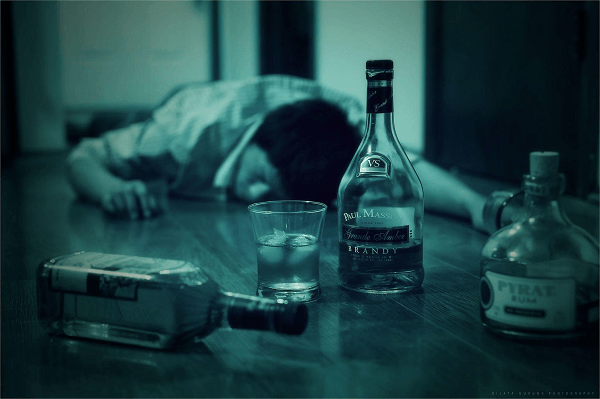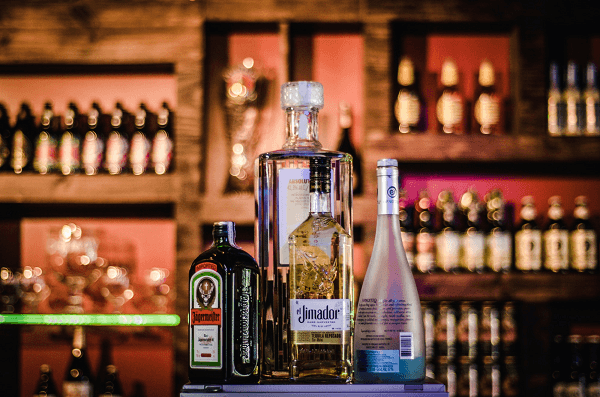Argumentative EssayIt was a warm Sunday night in mid-July, and the time was 8:54 p.m. Amit Rathee, a student at DAV Public School, was heading home with her mother after visiting her grandmother. They were too busy with their new iPad to see the speeding car. A 2018 Mercedes-Benz G-Class SUV struck him and his mother, killing them both. They passed away instantaneously. Two bottles of wine were consumed by a 32-year-old woman after she was involved in a dispute with her husband. She then got behind the wheel to purchase a third bottle. She killed them in the time it would take to utter, "Cheers." Alcohol prohibition would result in a decline in violent crimes and vehicular manslaughter instances. Furthermore, the eternally well-liked Abigail would be around as well. The 32-year-old woman went from living a luxurious life to spending her days in a cell with just one hour of sunshine. She eats soup for breakfast, lunch, and dinner. She receives no visitors. She hasn't seen her spouse or kids in more than ten years. She refuses to speak, despite the efforts of the prison psychiatrists. 
Her dad passed away from hepatic cirrhosis. In a drunken stupor, the father of her son fell off the back of a pickup truck, split open his head, and passed away before his legs touched the earth. She worries about her death while she sleeps in bed every day. Even if she had still made lots of poor choices in a world without alcohol, she would not have ended herself in jail for taking the lives of a mother and a little boy, and she would not have killed them. Due to drunk driving accidents, about 30 people pass away every day. One death every 48 minutes is the result of that. A drunk driver will cause the death of someone in less time than it takes to view the most recent Game of Thrones episode. A five-fold increase in the likelihood that a high school kid will drop out of school if they consume alcohol throughout these critical developmental years. Alcohol is considered harmful as it decreases inhibitions, which makes it more likely to cause even worse mishaps like drug usage and risky sex. Millions of individuals die from alcohol-related causes every year. Our brain may be affected, causing us to quake, lose all of our sensations, and drive our brain cells to die. Additionally, it may result in the deterioration and dysfunction of our liver. If our liver fails, our prospects of surviving a long life are slim since liver transplants are rare and difficult to get. Additionally, we risk choking to death from our vomit. Although excessive alcohol consumption can be fatal, millions of individuals do it daily. Everywhere in the globe, people drink to mark pleasant moments. Additionally, they indulge in alcohol with their pals after a tough day. Beer or wine is consumed by social drinkers while doing things like cooking supper, going to the cinema, relaxing on the terrace, having picnics, dining out, and much more. If liquor is a choice, then why is it so widely consumed? Why do so many individuals opt to drink it? Many more individuals than they know are dependent on others. EffectsHealth problems might result from excessive drinking. For example, we risk developing hypoglycemia or low blood sugar levels if we often drink and have an alcohol addiction. This lower blood sugar level is because our liver and pancreas are not working correctly, which can also hinder our body from creating enough insulin to utilize sugar effectively. Our blood sugar level may then increase as a result of this. If our body cannot maintain a healthy blood sugar level, we may have several severe side effects associated with diabetes. Regular alcohol abuse might weaken our immune systems and make us more susceptible to illness. Diseases like TB and pneumonia are more likely to affect those who drink excessively. The capacity of our bodies to fight off infections generally declines if we drink often. Finally, regular alcohol consumption increases the risk of developing head and neck cancer, particularly malignancies of the throat, mouth, and voice box. A person's chance of contracting one of these diseases increases three times more in those who drink fifty grams or more alcohol each day than in those who don't. The last statistic is that 20% of suicides include alcoholics. It's also crucial to note that women are often more susceptible than males to the adverse effects of alcohol due to various variations in how their systems consume and metabolize alcohol. 
Short Term EffectsAlcohol intake has various immediate effects, from reduced anxiety and motor abilities at low concentrations to sleepiness, anterograde amnesia, and a depressed central nervous system at significant levels. Alcohol is highly susceptible to cell membranes, so once it enters circulation, it may diffuse into almost all of the body's cells. The blood alcohol content (BAC) test is used to determine a person's level of blood alcohol. The quantity and consumption conditions are essential factors in determining the degree of intoxication; for example, eating a substantial meal before drinking causes alcohol to enter the body more gradually. Additionally, hydration matters, particularly when evaluating the intensity of hangovers. Binge drinking can lead to alcohol poisoning and death; a blood alcohol concentration of 0.40 per cent will kill half of those affected. It's possible to go unconscious after binge drinking. Alcohol use can also suffocate through vomiting, which can be dangerous. Alcohol can significantly worsen sleep issues since it disturbs regular sleeping patterns, lowering sleep quality. When quitting, the most significant return indicators are persistent disturbances in sleeping habits and consistency. Long Term EffectsThe 2018 Global Status Report on Alcohol and Health by the World Health Organization estimates that more than 3 million people worldwide die from alcohol-related causes yearly, accounting for more than 5% of the global disease burden. Similar figures from the US National Institutes of Health indicate that 3.3 million fatalities annually (or 5.9% of all deaths) are thought to be related to alcohol. If someone chooses to consume alcohol, regulations in the US and UK suggest that they do so responsibly. The risk of acquiring cancer rises with mild and moderate alcohol use, particularly the risk of oesophageal squamous cell carcinoma, oral and tongue malignancies, liver cancer, and breast cancer. A thorough examination of data from the observational Global Burden of Disease Study revealed that even mild alcohol intake looks harmful over the long run and that alcohol drinking, regardless of quantity, is linked to elevated mortality risk in all adults. Similar to other studies, it discovered an unexpected advantage for older women in lowering chances of dying from ischemic heart disease and diabetes mellitus; but, contrary to earlier research, it found those risks were balanced out by an apparent increased mortality risk from breast cancer and other factors. According to a comprehensive review and meta-analysis published in 2016, lifetime abstinence from ethanol intake was superior to moderate ethanol usage in terms of mortality benefits. Younger adults are at higher risk owing to severe cyclical drinking, which can cause aggression or accidents. Alcohol abuse over a long period harms almost all of the body's organs and systems. Several risks include drinking disorders, starvation, inflammatory diseases, liver cirrhosis (such as irreversible liver damage), and various cancers. Additionally, long-term alcohol abuse can harm the central nervous and peripheral nervous systems, leading to acute peripheral neuropathy. Alcohol has harmful effects on the growing teenage brain, which makes it more susceptible. A thorough investigation revealed that the quantity of alcohol intake suggested by many current standards is excessive, especially for young people worldwide. DNA DamageWhen cells break down ethanol, acetaldehyde is generated. The metabolite acetaldehyde can intercalate the DNA duplex's complementary strand when interacting with DNA. The mechanisms the cells use for repairing these crosslinks are error-prone, thus leading to mutations that in the long term can cause cancer. PregnancyThe techniques cells utilize to repair these complexations are prone to mistakes, which results in modifications that, over time, can result in cancer. Medical associations generally advise against consuming alcohol while pregnant. Alcohol quickly crosses the placenta from the mother's bloodstream into the fetus's bloodstream, interfering with the growth of the brain and many other organs. Alcohol can impact the baby throughout pregnancy, although the danger depends on the quantity and frequency of alcohol consumption. The most significant risk of injury comes from chronic excessive drinking and high cyclical consumption (also known as binge drinking), which involves four or more standard alcoholic beverages (a pint of beer or a 50 ml drink of liquor like a whiskey corresponds to around two units of alcohol) on any given occasion. However, smaller quantities can also lead to issues. There is no reasonably safe quantity or duration of alcohol consumption while pregnant, and the U.S. Centers for Disease Control and Prevention advise complete abstention for pregnant women attempting to become pregnant or are interested in sex but not taking hormonal contraception. Because specific individuals cannot regulate their use, it is simple to claim that the general community does not need to be subject to alcohol prohibition. But what if the doorway to poor choices was closed? Alcohol is, after all, a drug that causes addiction. Why should anyone be given access to such a tempting offer of death? Alcohol has no health benefits, even for those who use it in moderation. Participants consumed the same ethanol injected into automobile gas tanks with each drink. 
Cardiovascular DiseaseAccording to a comprehensive analysis published in 2010, mild alcohol intake has no adverse effects on patients with cardiovascular disease. The writers did not, however, advise starting to consume alcohol in the hopes of gaining any benefits. Research conducted in 2018 on 599,912 alcoholics shows an approximately linear relationship between alcohol use and an increased chance of stroke and cardiovascular disease, except for myocardial infarction, heart problems, fatal hypertension, and fatal aortic aneurysms, which was discovered, even in people who drink. According to the American Heart Association, those who are now abstainers of alcohol shouldn't keep consuming it. Even with frequent light to severe alcohol usage, there is a higher chance of developing dangerous irregular heart rhythms like atrial fibrillation. BreastfeedingAccording to the UK National Health Service, "an alcoholic beverage is unlikely to damage" a breastfed infant. Nursing women should consume "no more than one or two units of alcoholic beverages once or twice each week" (where a pint of beer or 50 ml drink of a spirit such as a whisky corresponds to about two units of alcohol). The NHS also suggests waiting a few hours before nursing or pumping milk into a container before consumption. According to studies, drunken breastfeeding decreases the average milk expression but doesn't immediately endanger the infant because the amount of alcoholic beverages conveyed is negligible. PreventionAlcohol use should be taxed more heavily, alcohol advertising should be subject to more burdensome regulations, and short-term treatments should be available to help prevent or lessen harm. Alcohol misuse treatment programs that are brief lower the likelihood of unprotected sexual intercourse, sexual assault, unintended pregnancies, and, most likely, the spread of STDs. There is no conclusive evidence that providing young people with information and instruction about social norms and the adverse effects of alcohol consumption in person or online can significantly alter their risky drinking habits. According to European legislation, individuals with alcoholism or other similar issues are not eligible to receive a driver's license, and those who already have one are not eligible to have it renewed, according to European legislation. Alcohol misuse is not prevented in this way, but it does stop people from driving while intoxicated. 
The history of alcohol consumption in a person's family may influence their demand for liquor. For example, if it is found that their family's history of alcoholism has a significant pattern, counseling measures may be required to lessen the probability of recurrence. On the other hand, research has shown that those who drink alcohol have family and friends who want to assist. The close relatives often would endeavor to modify or better the person's lifestyle. TreatmentYouth counseling and therapy should focus on minimizing or lessening the effects of adverse childhood events as they are frequently risk factors triggering the early beginning of alcohol dependency. By emphasizing positive reinforcement and refocusing impulsive teenagers' attention on health goals and objectives, techniques like contingency management and individual counseling have been proven beneficial in treating adolescent drug misuse. Young people's opinions of intoxication can be successfully changed by teaching them about what is considered excessive drinking and assisting them in focusing on their drinking practices. This may help them prevent excessive drinking. The optimum result of therapy is "abstinence," which is the complete cessation of alcohol usage. The motivation to abstain from alcohol or other drugs successfully is dynamic; relatives, friends, and healthcare professionals can impact this drive. Some alcoholics may be able to cut back on their consumption-a practice known as "consuming in moderation"-by cutting back on the amount they consume. The subject might have to try abstinence if this approach fails. In Alcoholics Anonymous, many alcoholics have frequently maintained their abstinence. Alcohol intake can be decreased through mindfulness-based therapeutic programmes, which promote awareness of one's sensations in the current moment and feelings resulting from thinking. The stigma attached to alcohol consumption is a significant impediment to therapy for people who struggle with alcoholism. When they believe alcohol addiction is more stigmatized, those who deal with alcohol misuse are less likely to pursue treatment services for drug (or alcohol) abuse. Because of the stigma attached, alcohol abusers are more likely to experience melancholy, anxiety, low self-esteem, and unhealthy sleep patterns. Several strategies have been discovered to lessen this stigma, even if unfavorable attitudes toward alcohol consumption can prevent people who are battling this issue from getting the help they need. When it comes to helping people who struggle with alcohol misuse, social support may be a powerful weapon in battling the negative consequences of shame and discrimination. People fighting alcohol misuse may require social assistance to overcome the stigma attached to their condition and eventually get the care they need. FAQs1. What is an argument? Argumentative refers to the inclination to dispute or debate angrily with others while giving facts and suggesting that specific conclusions and suggestions could be drawn from them. 2. What are the essential topics of argument in our society? Unemployment, consuming alcohol or smoking, education, healthcare system, hygiene, safe water, shelter, discrimination, fundamental rights, etc., are important topics of argument in our society. 3. Why do people consume alcohol? People used to drink to make themselves more friendly, gain power, become intoxicated, escape troubles, enjoy themselves, or perform rituals. 4. Is drinking and driving safe? Alcohol use while driving increases the likelihood of an accident or road injury. 5. Is alcohol good for health? Light to moderate drinking is linked to a reduced risk of heart disease, while consuming large amounts is harmful to health. 6. What is the minimum age for consuming alcohol? In India, the legal drinking age is 21, while the age to buy alcohol is 18. 7. How much alcohol is good for health per day? It is beneficial to one's health to consume alcohol in moderation, limiting one's consumption to 2 drinks for males and one for females daily. 8. Name the Indian states which have banned alcohol. Bihar, Gujarat, Manipur, Mizoram, Nagaland, and Lakshadweep are among the states that do not permit the sale of alcohol. 9. Is it safe for women to drink during pregnancy? Consuming alcohol when pregnant is never a good idea. Alcohol use during pregnancy can harm the unborn child. 10. Name the organs over which alcohol has an adverse impact. The heart, liver, brain, and pancreas are just a few of the organs known to be harmed by prolonged alcohol abuse.
Next TopicEssay on National Festivals
|
 For Videos Join Our Youtube Channel: Join Now
For Videos Join Our Youtube Channel: Join Now
Feedback
- Send your Feedback to [email protected]
Help Others, Please Share










